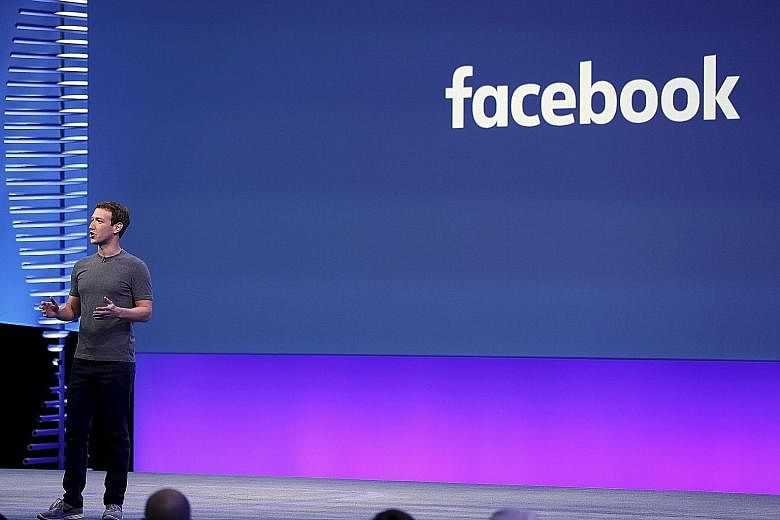SAN FRANCISCO • The world's largest social media network, Facebook, has published its internal editorial guidelines, in its latest attempt to rebut accusations that it is politically biased in the news content it shows on the pages of its 1.6 billion users.
The guidelines, which have never before been made public, give insight into what guides and discovers news items that are being shared widely, and how it is decided what to promote in the "Trending Topics" section of users' pages.
The 28-page document released on Thursday details how both editors and computer algorithms play roles in the process of picking what appears under Trending Topics.
While algorithms determine the exact mix of topics displayed to each person, based on that user's past actions on Facebook, a team of editors, much like a newsroom, directs how those topics are presented and decide what should be, and should not be, displayed in Trending Topics. And at practically every point in the process, a human editor is given the leeway to exercise his or her editorial influence.
For instance, after algorithms detect early signs of popular stories on the network, editors are asked to cross-reference potential trending topics with a list of 10 major news outlets. Editors are also entrusted to spot potentially large news stories bubbling up outside of Facebook by using an algorithm that trawls more than 1,000 automated feeds, along with traditional news sites. These editors can then introduce those trends into the Topics box, according to Facebook.
The guidelines were first created in 2014, and have been continuously updated over the last year and a half, said a Facebook spokesman.
The company also pointed to editorial rules that discourage Trending Topics staff from taking any one viewpoint, saying it has not found evidence that any editor intentionally manipulated the section to suppress conservative content.
"The guidelines demonstrate that we have a series of checks and balances in place to help surface the most important popular stories, regardless of where they fall on the ideological spectrum," Mr Justin Osofsky, vice-president for global operations at Facebook, said in a blog post on Thursday.
"Facebook does not allow or advise our reviewers to discriminate against sources of any political origin, period."
The document was released just days after a report on tech news site Gizmodo said that Facebook editors had intentionally "suppressed" news topics from conservative publications trending across the network. The report also said editors were able to artificially inflate the importance of other topics by "injecting" them into the Trending section.
On Tuesday, Republican Senator John Thune sent a letter of inquiry to Facebook chief executive Mark Zuckerberg, asking the company to further explain its editorial guidelines and to disclose whether there was "any level of subjectivity associated with" the Trending Topics section. Facebook said it planned to address Senator Thune's questions.
Experts also warn that trusting the neutrality of algorithms is a faulty premise. Algorithms are, after all, created by humans and therefore susceptible to the same unconscious biases. "As long as Facebook is hiring editors who lean left politically, those stories are going to get preferential treatment," Mr Erick Erickson, former editor-in-chief of the conservative website RedState, said in an e-mail. But Facebook's stance is that the best way to handle these issues is with a mix of human and machine input.
Mr Zuckerberg will host open discussions with conservative leaders and other politicians on the issue, he said in a Facebook post on Thursday evening.
He added that while the firm found no evidence the report is true, it will take steps to address problems if the probe uncovers anything against its principles.
"Every tool we build is designed to give more people a voice and bring our global community together," Mr Zuckerberg said. "For as long as I'm leading this company, this will always be our mission."
NEW YORK TIMES, BLOOMBERG

